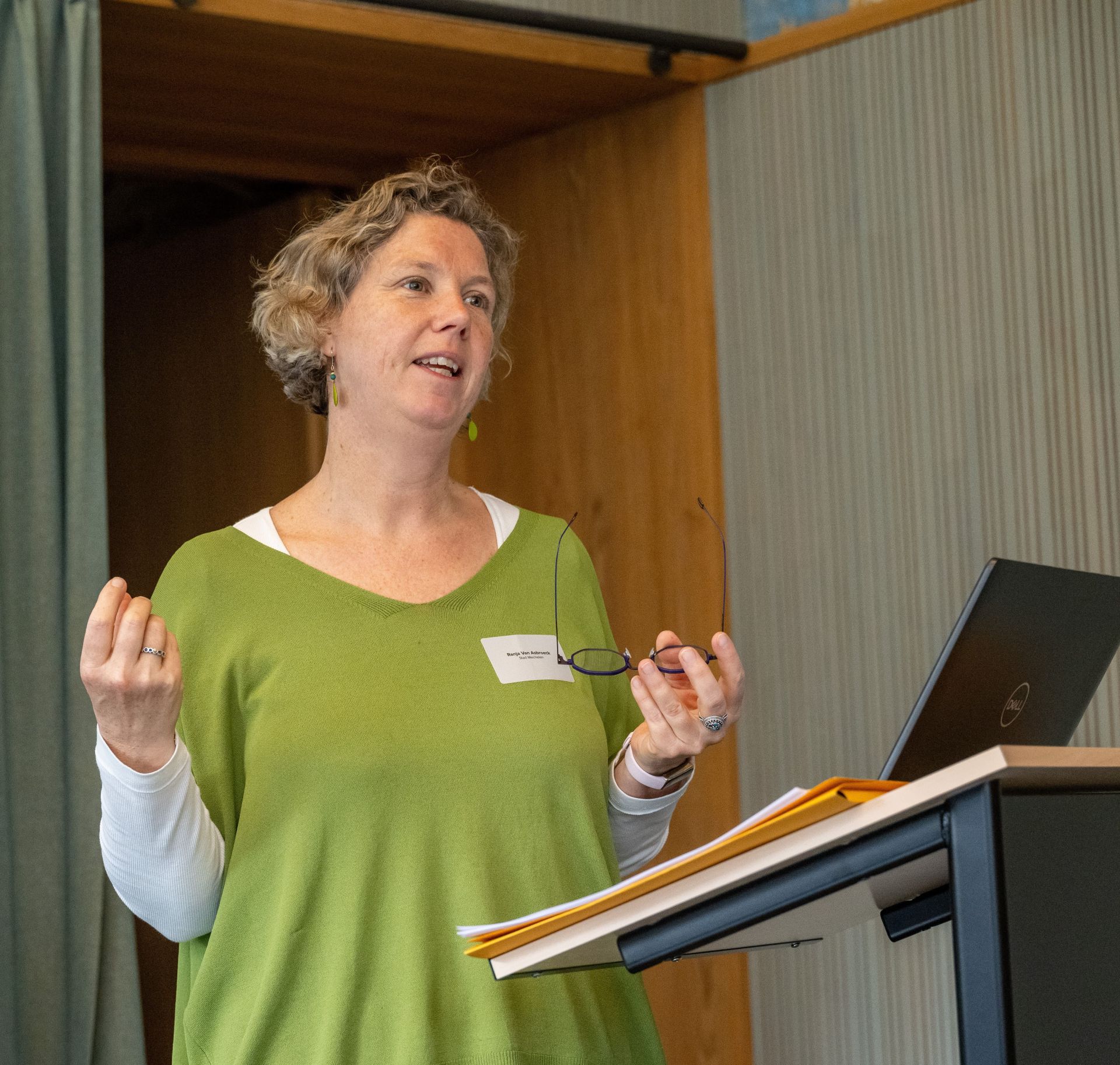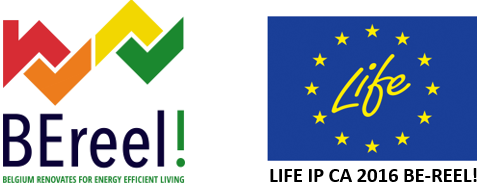So, has Mechelen Climate Neutral become viable thanks to BE REEL?
Ranja:
"The energy counter with the loans and premiums already existed. Thanks to
the BE REEL! We could also tackle the services around it and
expand the entire customer journey. This has generated many new initiatives:
information material, new tools to engage with actively, renovation guidance,
sustainable plan advice, group purchases, alternative financing models and
working around different target groups: more vulnerable target groups,
landlords and flat owners, for example."
The city
of Mechelen is also a partner of the BE-REEL! Project. Can you explain a bit
about the projects you are involved in?
Ranja:
"We do indeed do some things. You can distinguish five
major objectives. The first is making homes nearly energy-neutral and
developing methodologies around that. The city started providing sustainable
plan advice because it was noticed that more than a single measure is needed to
renovate existing houses. A thorough renovation is needed. To achieve this, we
have hired a sustainable plan advisor who advises architects and
owner-builders together, based on concrete plans, on how to make them more
sustainable. This includes insulation of the exterior of homes, measures to
combat heat and maintain coolness in homes, energy and water conservation
techniques, the use of solar energy, ventilation and reuse of materials or info
on sustainable alternatives on the market. Thanks to smart design and
facilities, interventions that are currently outside budget can be carried
out at a later stage. This not only prevents 'building knots' but also a lot of
costs."
"The
second objective is individual renovation advice and collective renovations.
Since the launch of BE REEL! We have been providing renovation advice at home
on demand to discuss with citizens who want to renovate what their priorities
are. We make an energy scan and then draw up an advisory report with a phased
plan. We also always look at what loans and grants the citizens can
get to minimise costs. Besides insulation, heat prevention and cooling are also
covered. Afterwards, we extended this offer to collective renovations. In
addition, we have implemented several innovative methodologies for this
purpose. We started by drawing up a vision for the neighbourhood and quality
requirements in advance with the building service so that we could also submit a
collective building permit for an entire neighbourhood together. By
coordinating this in advance, we can find a contractor willing to make a group
offer, resulting in good value for money and less worry for citizens. That
approach requires increased staff commitment to presence in a
neighbourhood, communication, and timing and scheduling must also be strictly
monitored."
"A
third objective is the solar panels we install on social housing and
the Klimaan cooperative. For instance, in the social housing estate Otterbeek,
we have provided an entire neighbourhood with green energy. Klimaan also
provides advice at home, and every inhabitant of Mechelen can sign up to buy
them. Our original goal was to create 450 installations cooperating with
the social housing company. The current position is 2162 solar panels, 730 of
which are on social housing. Although we have reached fewer houses, the installed power is much higher than expected. We have committed to energy sharing, allowing more houses to benefit
from the same solar panels. We have also worked out an addendum contract for
rental properties when solar panels are installed. Through this contract, the tenant and landlord can agree on a fee for solar energy that is lower than
the regular price, a win-win for everyone. "

